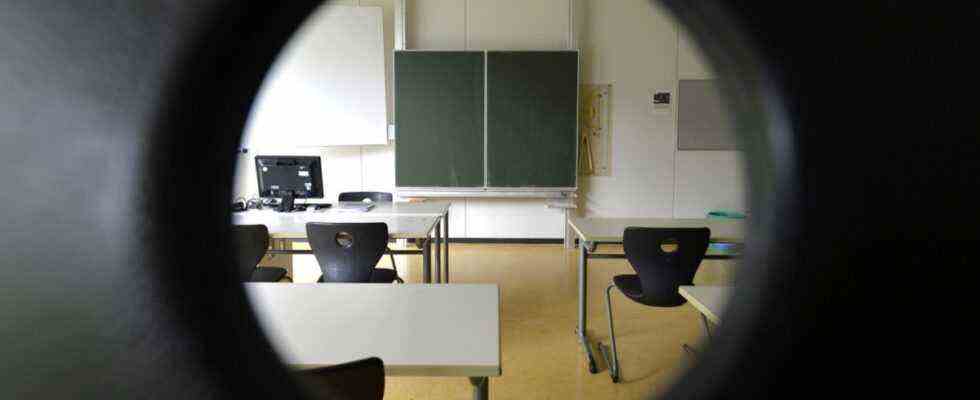Omikron has not yet arrived at the Nordschule in Kempten. At least not in numbers. Only three of the approximately 300 students are currently in quarantine and not a single teacher. “Before Corona, we had more sick teachers,” says headmistress Iris Bergmann; the rules of hygiene also lead to fewer colds. However, they would also have the luxury of fans and large spaces. The old elementary school building offers enough space to keep the 1.50 meter distance.
Elsewhere it is different. Entire classes are sometimes in quarantine, the school principals no longer know whether to wait for the official announcement from the health department or to send their protégés home straight away. According to surveys by the Ministry of Education, more than five percent of Bavarian schoolchildren were in quarantine because of an infection or contact on Friday – that’s more than 84,000 schoolchildren.
These children download worksheets or have them delivered to them at home. Some spend the afternoon calling the class teacher, others don’t. Some try to catch up on the material somehow – others just don’t. Very few students in quarantine follow the lessons in the stream, because very few schools are technically equipped.
However, it is currently taking longer and longer before anyone is even sent home. Because the health authorities actually order the quarantine. Minister of Education Michael Piazolo (FW) recently confirmed this again. In practice, however, the isolation time is often over by the time a letter from the health department arrives. It happens that the potentially infected seat neighbor of a student who has tested positive continues to sit in class, says Marlena Thiel from the State Student Council (LSR). “It can’t stay the way it is right now,” she says.
A sentence that Andreas Fischer would probably subscribe to. Like every primary and special school head, the rector of the Landau an der Isar primary school has to check the results of the PCR pool tests that were done in the morning every evening. They are supposed to arrive from 8 p.m., if they are not there yet, he has to stay awake until 11 p.m. If a pool is positive, it must check which individual students have tested positive. He doesn’t complain at all about the extra work. “Everyone has to do their part,” he says. However, he also knows what the quarantine reality looks like. “We have to make quick decisions here on site,” he says.
This is confirmed by the President of the Bavarian Teachers’ Association (BLLV), Simone Fleischmann. “The courageous headmaster has to decide for himself what he does,” she says. There are health authorities who are asking their schools to continue sending students home themselves because they can no longer keep up. Strictly speaking, the principals shouldn’t do that. These would be “left alone in a dilemma,” Fleischmann complained.
In view of the chaos and the high incidence among children and young people, many parents hope that compulsory attendance will be lifted. The Ministry of Education only reintroduced this in October, when more and more alternative schools in which children were being taught illegally became known. There is a correspondingly great concern about promoting such parallel structures if, as in other federal states, one should give in to pressure from some parents. The Ministry of Education points out that schools with regular tests are among the “best protected places” and that the social and emotional health of the students is also important.
Others don’t see it quite so categorically. The BLLV relies on regional solutions, just like the Greens. They plead for more justified exceptional cases, for example in the case of mental illnesses. However, a general lifting of the obligation to be present is not expedient. “We have to keep an eye on those who want to evade any control,” says Gabriele Triebel, a member of the Green Party.
The student representatives would also like more differentiation. Yes, classroom teaching is important, says Marlena Thiel. But given the situation, nothing should be ruled out. On Friday, the state student council called for better participation opportunities for quarantine students, an FFP2 mask requirement at least from grade 10 and an extension of the PCR pool tests to all grades. However, given the overload in the laboratories, this is unlikely. They are currently busy creating the conditions for the PCR tests in the fifth and sixth grades. These are scheduled to start in March.

